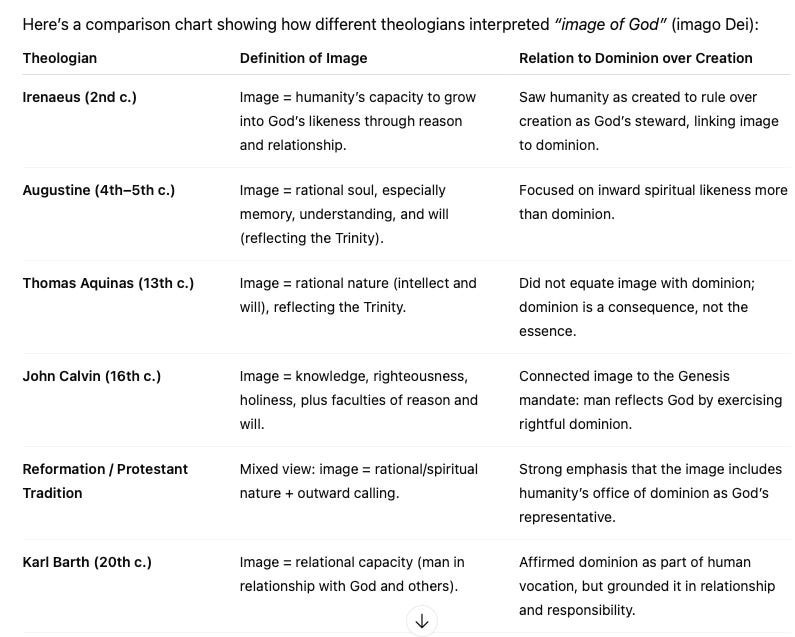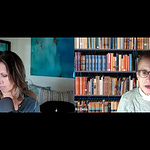Dr. Noreen Herzfeld is Director, Benedictine Spirituality and the Environment at St. John’s School of Theology and Seminary. She’s the author of “The Artifice of Intelligence: Divine and Human Relationship in a Robotic Age.”
It’s a fascinating exploration of questions at the heart of the collision of AI and faith, such as how does AI change human relationships?
Though one can say AI is just another advancement in technology, and society and relationships have been adapting just fine, AI is extraordinarily unique for its lack of passivity: it is learning, adapting and increasingly given agency to make choices. It has cognitive power, like a human, but more super… human. Much like a human, AI is often referred to by name, and dignified as a sentient being.
While people have asked questions about how computers are able to do this, Noreen has been puzzled by the “why” man is doing this in the first place. Why is man trying to create a super human? And therefore what does it mean to be human?
As a computer scientist she tried to research these questions in vein. She finally realized her discipline, which taught her all about how operating systems work, couldn’t equip her with the answers to how humans work. What motivates human beings to do what they do? What is the essence of man? The only way to examine such existential questions, she believed, was to study religion, and specifically the Judeo-Christian faith. After all, the Bible tells us as much about God as it does about ourselves.
In her book and in our interview, Noreen talks about the importance of understanding what it means to be created in the “image of God.” In Genesis 1:27, it says “So God created mankind in his own image, in the image of God he created them; male and female he created them.” I’ve read that verse many times and I’ve truly never contemplated what the word image meant. Noreen explained (around 12:00 in our interview) how throughout the centuries, biblical scholars and theologians had various interpretations of the meaning of image. Image as intellect; image as dominion or image as relationships. For example, in 13th century Italian philosopher and theologian Thomas Aquinas’ Summa Theologica, image doesn’t refer to a physical reflection but of intellect and will. Other scholars, like 16th century French theologian John Calvin believed dominion over the earth was also part of the image of God.
Below are other definitions of “image” courtesy ChatGPT.
You will note that Karl Barth on that list equates image with relationship. As Noreen explains, 20th century Swiss theologian Karl Barth is the foremost scholar who said that the triune God is a relationship. No one of us is the image of God alone. The image arises when we’re in relation with each other and God. Man therefore has inherent desire for relationships, particularly with God though many do not recognize the need, and they search for relationships elsewhere.
The question arises, therefore, if image is relational, can AI truly be created in the image of man if it doesn’t have the ability to have a relationship with God and authentic relationships with people?
This is part of our conversation, which also explores other human activities that define and refine human character, like suffering. As it says in the Bible in Romans 5: “Not only so, but we also glory in our sufferings, because we know that suffering produces perseverance; perseverance, character and character, hope.” Many people scoff at the idea that an omniscient and omnipotent God would allow suffering in the first place. Yet even in the physical world, stress is good. For instance, exercise scientists say increasing the time a muscle is strained builds endurance and muscle growth. This is called “Time under Tension.” Another example is Biosphere 2 - a project where scientists study ecosystems. Trees were grown inside with ideal conditions, such as no wind and pests. Over time, the trees got weak because they didn’t experience the stress of windy conditions.
It’s hard to imagine what kind of strain AI would experience to fully develop into a super human. Perhaps it’s the stress of not knowing all the answers and enduring discovery phases as it tries to answer bigger problems. But here is the challenge for humanity: how much agency do we give AI as we allow it to take over more and more tasks? What does that look like in war? Noreen and I discuss that as well. Finally, she answers the question: What is AI’s biggest threat to Christianity.
You can learn more about Noreen here: https://www.csbsju.edu/theology/person/noreen-herzfeld/
You can watch a lecture she gave on her book The Artifice of Intelligence. You can purchase her book here. You can learn more about her other books, such as Technology and Religion and Artificial Intelligence and the Human Spirit.
Interview coverage:
2:28 - Noreen’s Christian journey being raised Lutheran and becoming a Quaker.
4:47 - What is a Quaker?
7:50 - The quest to understand why man was trying to design AI with human qualities. And why Noreen’s background as a mathematician was not sufficient.
8:57 - Why are we trying to make AI in our image?
11:22 - Why do we want a relationship with AI and understanding first what man is and why he wants relationships?
12:39 - How theologians and philosophers defined the image of God throughout the centuries.
15:34 - When we don’t have a relationship with God, we search for it elsewhere.
16:51 - What is the essence of a relationship? And can AI ever have an authentic relationship with a human?
20:41 - How much agency does AI have and why AI doesn’t have moral agency?
24:00 - If tech is trained to please people, then it won't tell the truth.
25:00 - The importance of suffering to be human.
27:30 - It’s not that AI is getting smarter, but that we’ve lost the ability to know what relationship is. “We’ve become more like the machine” - how do we stop ourselves from being more like the machine. Being in relationship with God and each other.
29:50 - What happens to our body we die?
33:30 - Does AI give us an opportunity to talk to atheists about Christianity? It does help younger generation ask what does it mean to be human and live a good life?
36:00 - In the first century AD, Christianity overtakes polytheism and mythology as a countercultural shift in thinking; In the 1500s, the Protestant Reformation and the Enlightenment became a significant new way of thinking. What new thinking is AI ushering in?
43:00 - AI and war. Why is AI a moral rubicon? The consequences of outsourcing agency.
49:00 - In order to win the AI war, how much agency should be coded into AI?
52:00 - What is public theology?
53:50 - What’s the greatest threat to Christianity that AI poses?











